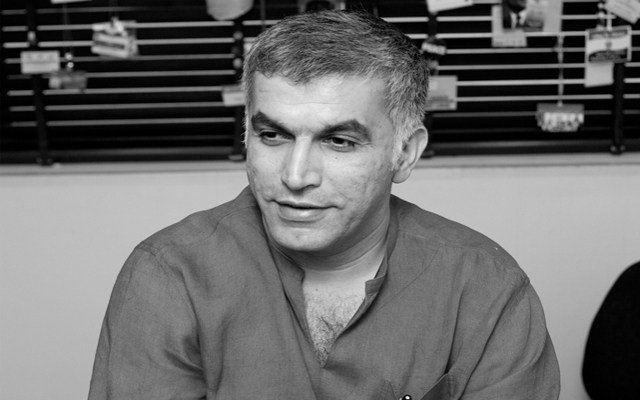17 May 2017 – Bahraini authorities last week denied entry visas to German journalist Robert Kempe and American Human Rights Watch researcher Omar Shakir, both of whom were seeking to visit Bahrain in connection with the FIFA Congress being held in Manama on 10 and 11 May. In both cases, the Bahraini government’s decisions appear to have been taken in response to the human rights-related work of each individual. The incidents are demonstrative of Bahraini authorities’ systematic and ongoing failure to provide access to the country for independent journalists and human rights defenders.
Robert Kempe is a freelance journalist who was attempting to travel to Bahrain to cover the FIFA congress as a member of the media contingent of the German broadcaster ARD. On 25 April 2017, an official from the Bahraini Ministry of Information emailed Kempe to inform him that the ministry had refused his request for an entry visa. The email did not provide any further elaboration regarding this denial. FIFA representatives were made aware of the situation and reportedly attempted to raise the issue with the Bahraini government, but were ultimately unsuccessful. FIFA maintained that “no detailed reason [for the visa refusal] was given.” However, it has since been suggested that authorities prevented Kempe from entering Bahrain in response to his past reporting on human rights violations in the country. In February 2016, Kempe authored a news report in which he included allegations that Bahraini royal and FIFA vice-president Sheikh Salman bin Ebrahim Al-Khalifa played a role in the human rights violations committed by the Bahraini government in response to the country’s peaceful mass pro-democracy movement in 2011. Kempe was the only journalist on ARD’s team that was denied a visa.
Omar Shakir is the Israel and Palestine Director at Human Rights Watch. Shakir traveled to Bahrain with the intention of meeting with FIFA officials in order to urge them to adopt a resolution directing FIFA’s Israeli affiliate to cease further sponsorship of games in Israeli settlements in the occupied West Bank. He arrived at Manama Airport on 9 May, at which point Bahraini authorities detained and questioned him before ultimately informing him that he was “not welcome” in the country. Airport officials ordered Shakir to purchase a ticket aboard a departing flight, with one reportedly threatening that if he did not buy his ticket right away, they would “do it by force.”
The Bahraini government in recent years has repeatedly engaged in behavior aimed at preventing independent media personnel and human rights defenders from entering or operating freely in the country. Indeed, the Bahraini government’s ongoing prosecution of prominent human rights defender Nabeel Rajab is in part based on charges stemming from Rajab’s 2015 and 2016 criticism of authorities’ failure to permit the entry of these individuals. In addition to the cases of Kempe and Shakir, Bahrain Watch has documented more than 250 individual instances of such individuals being deported or refused entry into the country as a result of their work. More recently, the Committee to Protect Journalists and several other news agencies and rights groups addressed Bahrain’s King Hamad in an open letter decrying the government’s “seeming attempt to silence independent reporting within the country” through the refusal of entry visas and media accreditations.
Alongside its exclusion of activists and independent journalists from the country, the Government of Bahrain has failed to meaningfully engage with the United Nations (UN) Office of the High Commissioner for Human Rights (OHCHR). Indeed, despite its continued reaffirmation of the importance of its relationship with OHCHR, the Bahraini government has not allowed a UN Special Procedures mandate holder to visit the country since 2006.
The Bahraini government’s refusal to grant entry visas to Robert Kemper and Omar Shakir is indicative of its overall attitude towards media freedom and human rights. Indeed, Bahraini authorities’ track record has shown it to be highly averse to any situations in which individuals might seek to expose the reality of the government’s abuses or those of its allies. Its record of carrying out reprisals against its own citizens who engage in activism and independent civil society activity is further proof of this stance. It therefore continues to be extremely important for members of the international community, many of whom are allied with the Bahraini government, to pressure the country’s leaders to respect human rights. In this regard, urging the Government of Bahrain to allow independent journalists and human rights defenders into the country should be at the top of the list. Furthermore, the cases of Kemper and Shakir highlight the need for organizations like FIFA to take the human rights records of partner countries into consideration, and to respect the human rights-related commitments that they themselves have agreed to.





